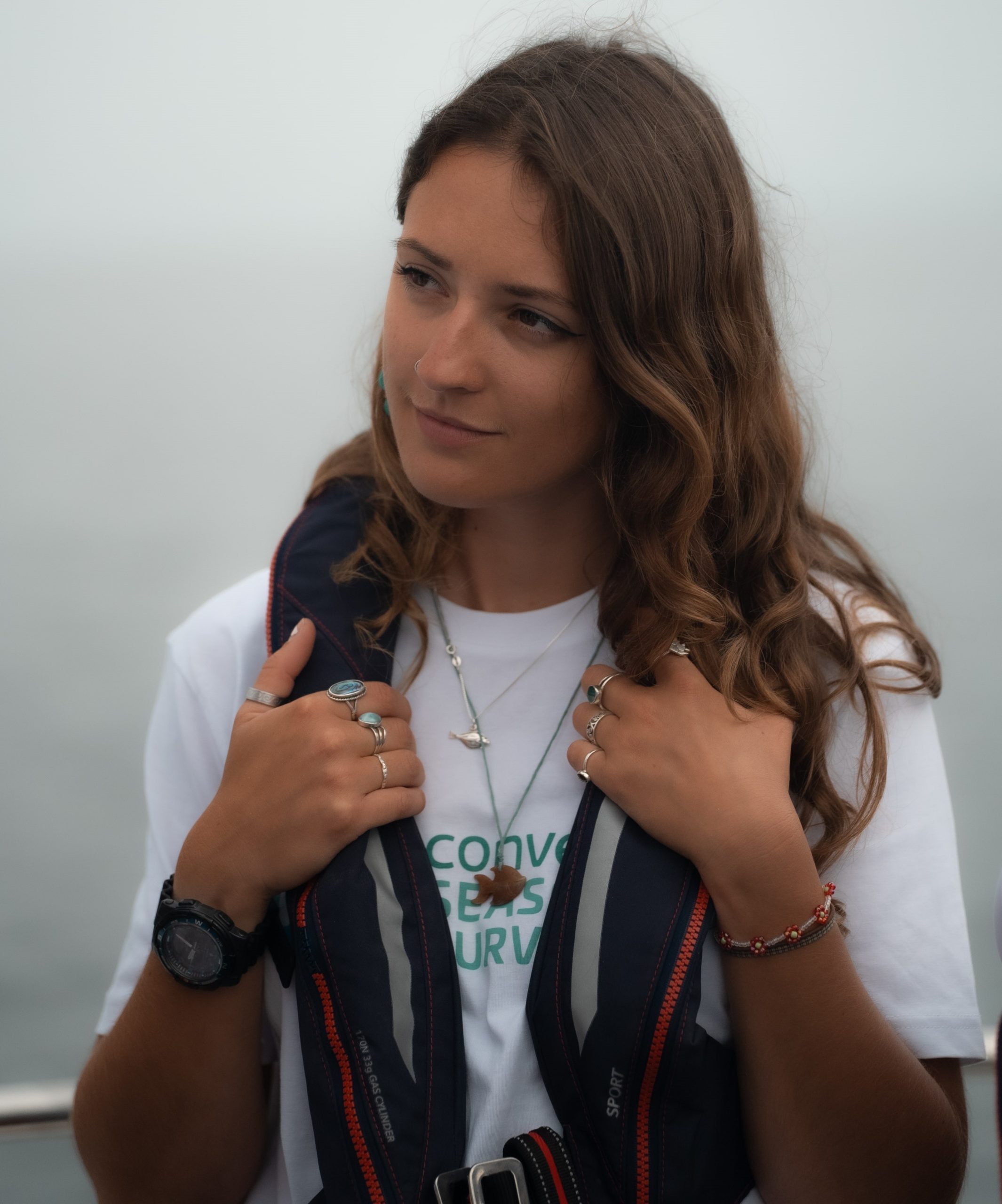Our world-leading marine research underpins a wide range of undergraduate and postgraduate programmes. In our MSc Graduate in Focus series we look at the achievements of our MSc graduates who have excelled in marine science around the world since studying with us. Today we chat with Tara, MSc Marine Environmental Management graduate and now a PhD student at the University of Exeter on the Convex Seascape Survey project!
What have you been doing since leaving Exeter, and what are you doing now?
I began studying at Exeter in 2017 and I’m sheepish to say that I’ve never left! I spent 4 years on my Marine Biology undergrad (one of the years was in Perth, Western Australia), then two years on a part-time Marine Environmental Management master’s degree and have just begun a PhD with Professor Callum Roberts, Dr Julie Hawkins and Streatham Campus lecturer Dr Ceri Lewis. You can certainly say I’ve taken my time! My PhD is part of the Convex Seascape Survey and we’ve had two great field trips to Scotland this year, testing out equipment including Baited Remote Underwater Video Systems (BRUVS), grabs, a vibro-corer and a Remotely Operated Video (ROV). We’re investigating how life on the seabed changes over a gradient of protection from trawling and dredging, and how this impacts the storage and resuspension of blue carbon.
Alongside the MSc, I completed my PADI Divemaster with the Cornish Diving Centre, which was an absolute blast. I’ve just begun my Instructor Development Course (IDC) with them. If all goes to plan, I should be qualified in April 2024, after training throughout the coldest part of the year!
I was also awarded funding from ExeterMarine earlier this year for a project called ‘The Underwater Gardens of the Helford Estuary’, on which I am working with local underwater photographer Shannon Moran. We’re in the process of creating a photobook and series of exhibitions, showcasing the enchanting life below the waves in the hopes of supporting the marine conservation measures there.
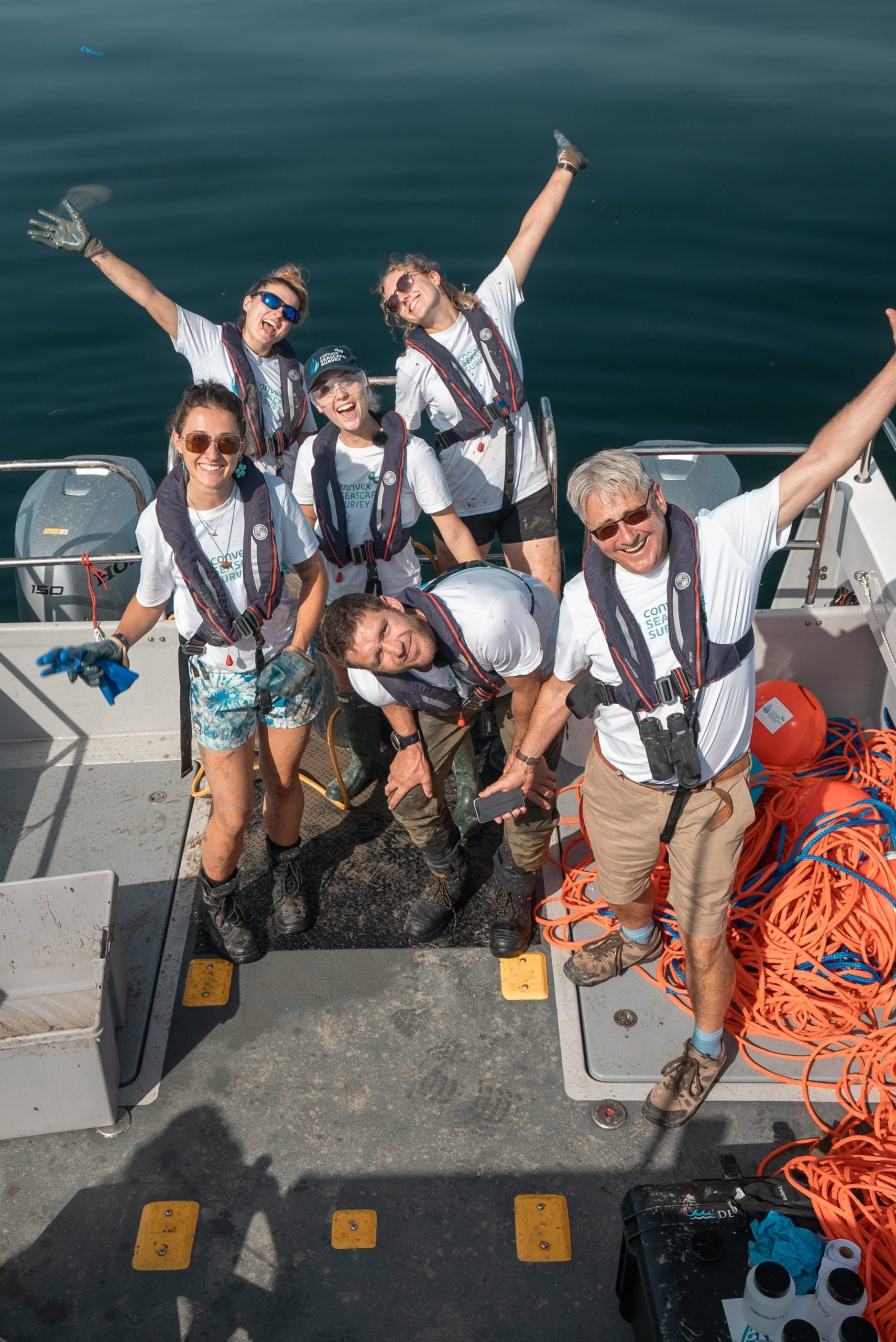
Please tell us a bit about your time at Exeter:
Applying to study at Exeter’s Penryn Campus was one of the best decisions I’ve made. The lifestyle is unbeatable – you can leave the Old Chapel lecture theatre and be on a moor or in the forest or sea within half an hour. I took up surfing and sea swimming and joined the Gylly Adventures team as a kayak, paddleboard and coasteer instructor in 2020, which gave me a change of pace and scene during the summers. During the summer just gone (2023), I managed the activity centre which felt like a nice way to ‘round off’ my time with the company before starting the PhD.
Considering Cornwall is so ‘isolated’ from the rest of the UK, I found that there’s a very well connected ‘marine community’ here – there is always something going on and it’s easy to get involved through university societies or local NGOs. For example, I was able to use the Uni’s Widening Participation Funding to obtain a paid position at the Rock Pool Project in 2020, and recently linked back in with them to co-host a BioBlitz event with my PhD programme where I met representatives from the Marine Biological Association, RSPB, RNLI and more.
What did you enjoy most about your programme and what was the biggest highlight?
The lifestyle and extra-curricular opportunities were definitely highlights, as was my personal research project and the extra project I worked on part-time as a Graduate Research Assistant to Callum & Julie. I’d been really lucky to spend a month in Bonaire, a small island south of the Caribbean, collecting data for my dissertation whilst Callum and Julie collected another dataset destined for a paper on reef changes over time. Back in the UK, I transposed their data from underwater slates to spreadsheets and analysed the patterns in R Studio. These data formed the basis of a report on ‘changes in five of Bonaire’s most significant fish family assemblages between 1994 and 2022’ which we returned to the island to present to local stakeholders in January 2023, and I continued analysing ‘my’ dataset for my dissertation on the impact of SCUBA diving on coral reefs which I submitted in September 2023. The study yielded some interesting results – unfortunately, the island seems to have lost many of its big predatory fish (things like groupers) but parrotfish and smaller predatory fish like snappers and grunts are doing well. We’re currently prepping both studies for publication which is both exciting and terrifying!
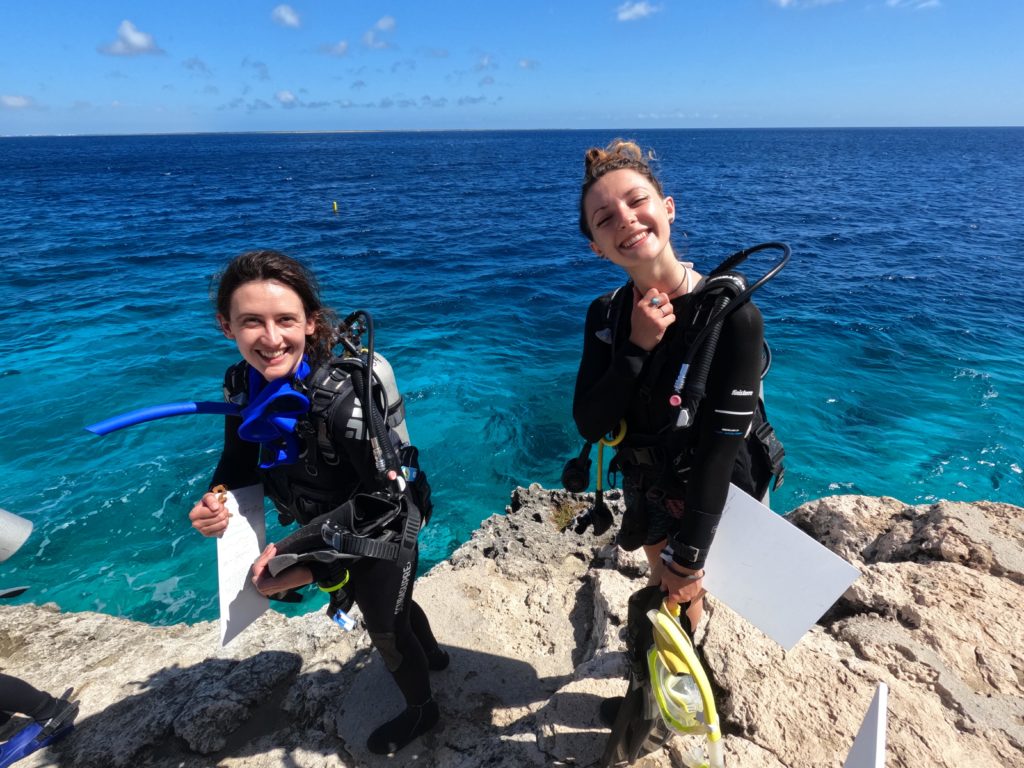
What was your dissertation/thesis about? Tell us about this experience.
My dissertation investigated the impacts of SCUBA diving on the coral reefs of Bonaire, and I was exceptionally lucky to be able to compare two points in time – 1994, when Callum & Julie first went to the island to conduct the study, and 2022 when we returned to repeat their methods. 100% of Bonaire’ s sea, as well as much of its land, is protected and managed by an NGO called STINAPA who are super cool and passionate about their island’s environmental health. This is probably why it has some of the healthiest and most dazzling coral reefs throughout the whole Caribbean, as well as a thriving dive industry, so much that it’s nicknamed ‘Divers Paradise’.
When Callum & Julie first visited Bonaire in the early 90s, few SCUBA divers had ‘discovered’ the island and pressure from diving was quite low. They still recorded broken and abraded coral and concluded that the island probably wouldn’t be able to sustain much expansion to its dive industry. Flash forward 28 years, over six times as many divers visit the island each year but despite this, I found no significant increase in many types of coral damage associated with diving. Unfortunately, the island has seen a huge increase in coral diseases, in-keeping with trends seen across the rest of the Caribbean and other coral reefs around the world. But at least we can conclude that divers aren’t the (biggest) problem and can hence keep enjoying this island’s beautiful marine life which is a surefire way to galvanise love and conservation of the ecosystem.
What did you enjoy most about studying in Cornwall?
Cornwall has been brilliant – so brilliant that after the PhD, I’ll have been here for 10 years. I really like the pace and way of life, and there are so many opportunities to get involved with marine conservation or outdoor pursuits. I feel so, so lucky to have the sea on my doorstep; be it Pendennis Headland for a dive or rockpool, Gylly for a swim or snorkel, Swanpool for a longboard on a strong easterly. Winters aren’t so bad, and summers are so beautiful. We’re isolated down here and it’s a flipping mission to get home, but if it wasn’t for that, we wouldn’t have such a wild and beautiful part of the country to call home.
Why did you choose to study at Exeter?
I’d never been to Cornwall when I moved down for Fresher’s Week, but I’d heard great things and the University of Exeter offered the specific course I wanted to study (Marine Biology with Study Abroad). I absolutely loved my BSc but it was ‘COVID time’ when I applied for the MSc, and I’d been looking at a Garden Design/Landscape Architecture course in Bristol for a change of scene and because it was a topic I’d studied and enjoyed during my year abroad in Perth, WA. In the end, I chose to stay but study part-time to afford the course whilst completing my Divemaster, and because Marine Environmental Management offered a way to really apply what I’d learnt during my undergrad. I also figured I could weave elements of Landscape Architecture into the degree easier than the reverse, which is something that contributed to the idea for the Underwater Gardens of the Helford Estuary.
What skills and experiences have you gained that have been/will be most useful for your career?
I think working on ‘toughening myself up’ has been really useful as a field biologist, and I reckon it was especially helpful when I applied for the PhD. Going out in all conditions and diving through the winter for the PADI Divemaster has been a big part of this, as well as keeping people safe on the water whilst working at Gylly Adventures. If nothing else, it takes more for me to get seasick now which is handy for boat work!
The GRA position really helped build my confidence with data manipulation and analysis and allowed me to practise academic writing and presentation skills which are things I’ve really struggled with in the past. It was also great to work on a research project which had an opportunity to ‘feedback’ to the people and community concerned, which required a different communication style and really hit home why marine conservation matters which can be easy to forget when you’re staring at spreadsheets of 1s and 0s!
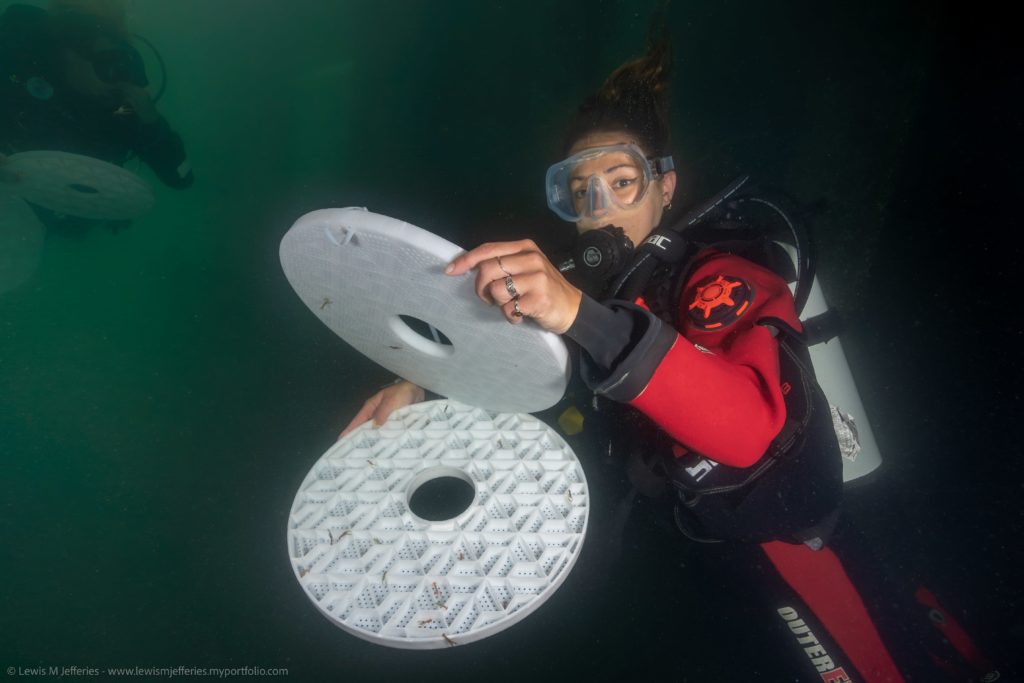
What advice would you give to a current student who wishes to pursue your career?
I’m still very ‘early days’ in terms of being a PhD student, but there are a pieces of advice that have really stood out to me so far and during my MSc. Firstly, everyone tells you to be careful choosing a PhD because you’re committing to something very niche for the next 4 years. Whilst I agree that it’s so important to be passionate, I don’t think you need to stress too much about the ‘narrowness’ because surely you’d commit to a ‘normal’ and specific job role too? And a degree is 3-4 years so you’ve likely already proven that you can study one thing for an extended duration. This links in with the advice I’m trying to follow to treat the PhD like a 9-5 job; switch off in the evenings and the weekends.
During my MSc, I tried to build as many skills as possible and say yes to opportunities, even when they weren’t directly related to the field and I think this has been invaluable. Dealing with cold, rainy conditions during my Divemaster made me competitive for a fieldwork heavy PhD, and editing social media posts at work prepped me for the science communication and outreach side of things. It’s also nice to have hobbies outside of academia. But I’d also say, work on your academic CV and read around the area you’re thinking you want to study so you can visualise yourself there and know where the gaps are.
What are your plans for the future?
My biggest plan is to survive my PhD (!) and PADI IDC, and just try to enjoy the journey. You hear lots of scary things about PhD ups and downs so I’m trying to remind myself that it’s normal to feel the highs and lows, and that academia isn’t my ‘whole’ life. I’m not too sure what I want to do afterwards. The post-doc -> lecturer path certainly appeals to me, but I think I’d like to spend some time appreciating the sea for the sake of it afterwards – perhaps as a dive instructor, or perhaps just through travel. I’m also really excited about where my Underwater Gardens of the Helford Estuary project will take me, and I’d perhaps like to explore the outreach/writing/photography side of things more in time.
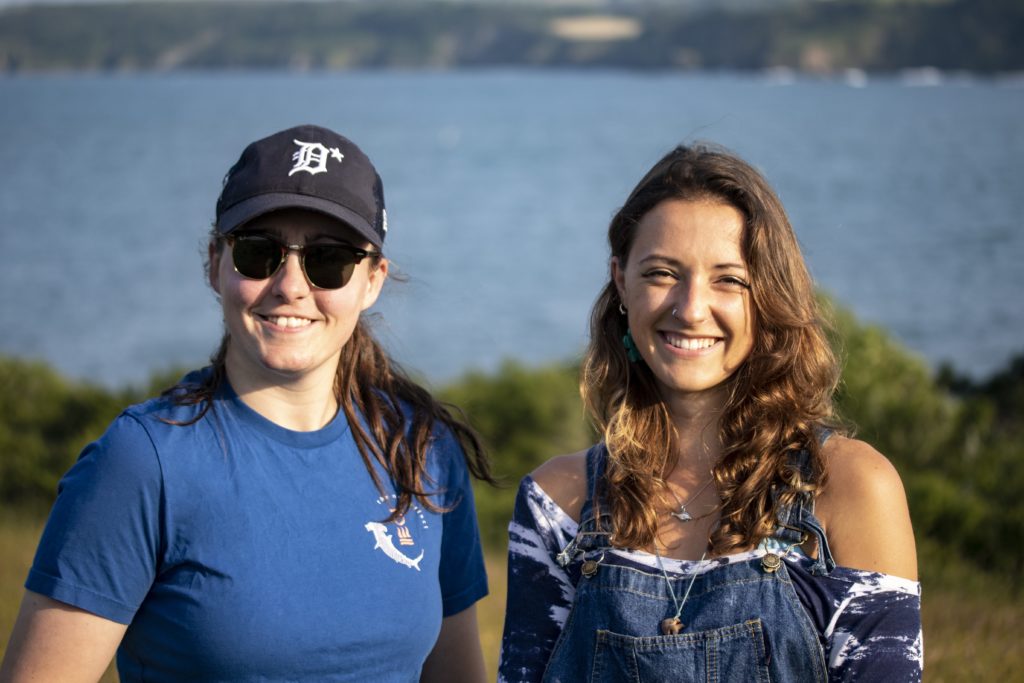
Interested in our degree programmes? Take a look at our website.

